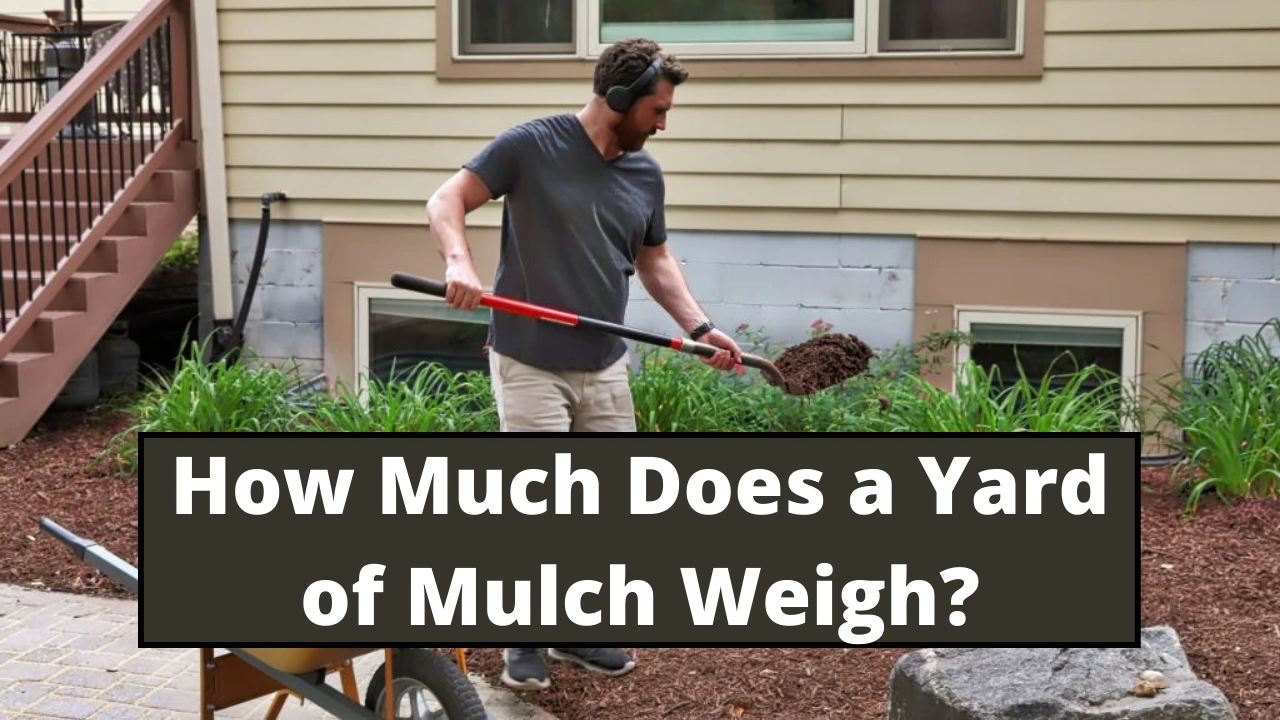It is crucial for gardeners to measure the amount of mulch needed. So we are! Also knowing the weight of the mulch helps to understand the time and effort while transporting. Now the question is, How much does a yard of mulch weigh?
A yard of mulch typically weighs between 400 and 800 pounds. Mulch, visually measuring 3 feet long by 3 feet wide by 3 feet tall, serves as a crucial element for gardens and landscapes. It aids in moisture retention, weed suppression, and soil temperature regulation. The weight of mulch can vary depending on its moisture content, with higher moisture resulting in increased weight.
The weight of a yard of mulch depends on the type of mulch used, with finer mulch weighing more than coarser ones. Knowing the weight of a yard of mulch can also help you calculate its coverage, and determine how many bags or cubic yards you need for your project. In this article, we will discuss the weight of different types of mulch and the factors that might affect its weight.
Table of Contents
How Much Does a Yard of Mulch Weigh?
A cubic yard of mulch typically weighs between 400 and 1000 pounds (0.2 to 0.5 tons). The weight varies based on factors such as the type of mulch, moisture content, and particle size.
The material and moisture content influence the weight of mulch per yard. Organic mulches, like compost, are heavier due to higher moisture retention compared to inorganic mulches such as wood chips.
Particle size also affects weight. Smaller particles absorb and retain more water, making them heavier. Examples of mulches with smaller particles include shredded leaves and fine wood mulch. Larger particles, like wood chips or grass clippings, have less water retention and are lighter.
Consider these factors when estimating the amount of mulch needed for your project, and consult with your supplier for more specific weight information.
Calculating Mulch Weight for Your Yard: Simple Steps to Determine the Right Amount
To figure out how much mulch you need for your garden, follow these steps:
- Measure how long and wide your garden is using a measuring tape.
- Multiply the length and width numbers together to find the total area of your garden.
- Decide how thick you want the mulch to be and measure that with a ruler.
- Convert the thickness to feet if needed. For example, if you want 2 inches of mulch, it’s the same as 0.167 feet.
- Multiply the area of your garden by the thickness in feet to find the volume in cubic feet.
- Since mulch is usually sold in cubic yards, divide the volume in cubic feet by 27 to get the amount in cubic yards.
Let’s say your garden measures 15 feet in length and 10 feet in width. You want to apply a 3-inch layer of mulch.
- Area: 15 feet × 10 feet = 150 square feet.
- Thickness in feet: 3 inches ÷ 12 = 0.25 feet.
- Volume: 150 square feet × 0.25 feet = 37.5 cubic feet.
- Convert to cubic yards: 37.5 cubic feet ÷ 27 = 1.39 cubic yards.
So, for this garden, you would need approximately 1.39 cubic yards of mulch.
Remember, the weight of mulch can vary based on factors like moisture content and the type of mulch used. On average, one cubic yard of mulch weighs between 400 and 1,000 pounds. Therefore, the weight of 1.39 cubic yards of mulch would be between 556 and 1,390 pounds.
Always check with the mulch supplier for specific weight information and recommendations based on the type of mulch you plan to use.
Type of Mulch
There are several types of mulch commonly used in landscaping and gardening. Here are some popular types:
Wood Chips
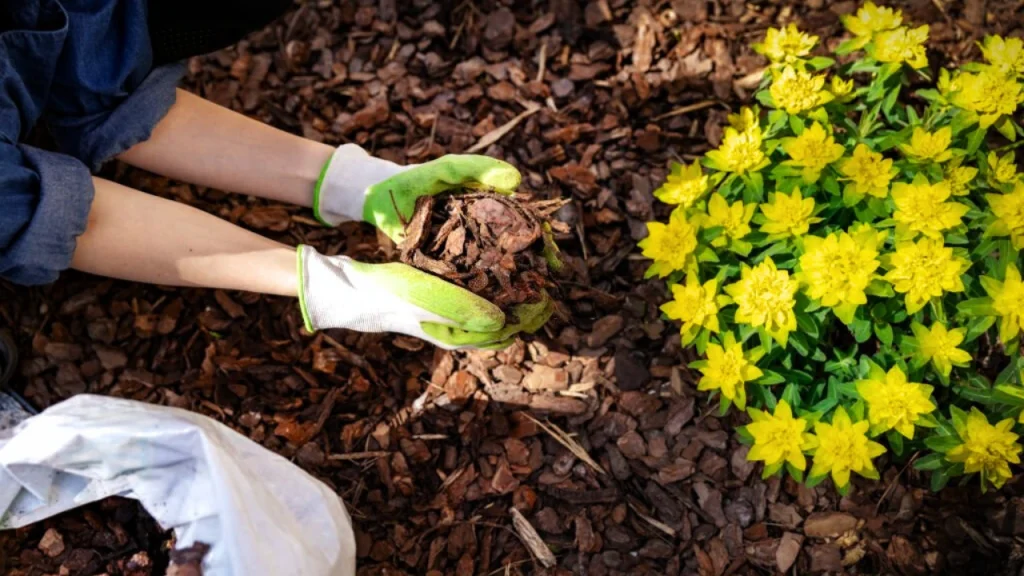
Made from various wood species, wood chips are popular for their slow decomposition rate. They prevent soil erosion, enhance drainage, and offer visual appeal to garden beds.
Bark Mulch
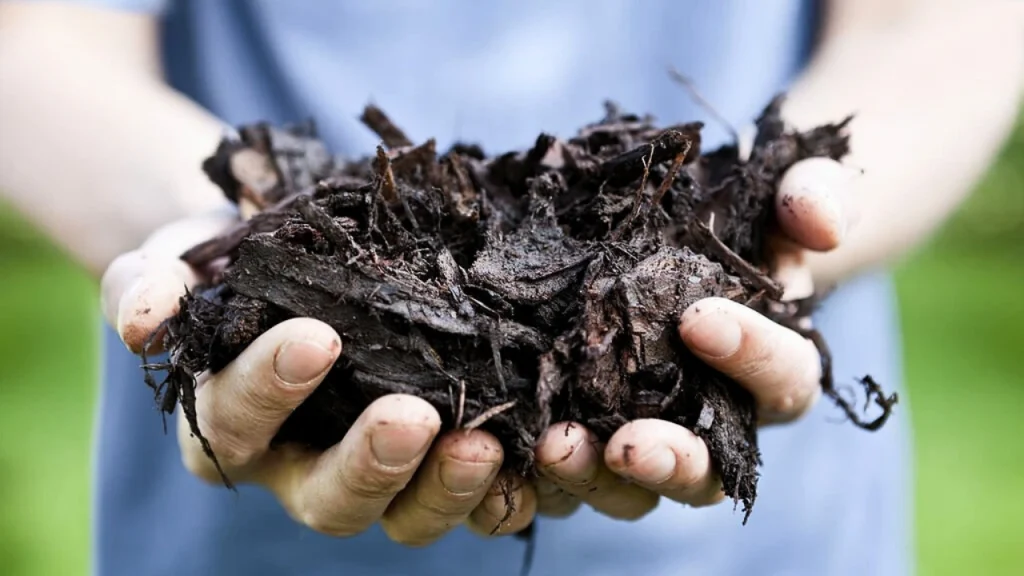
Derived from tree bark, this mulch type comes in different sizes and textures. It helps conserve moisture, regulate soil temperature, and suppress weed growth.
Compost
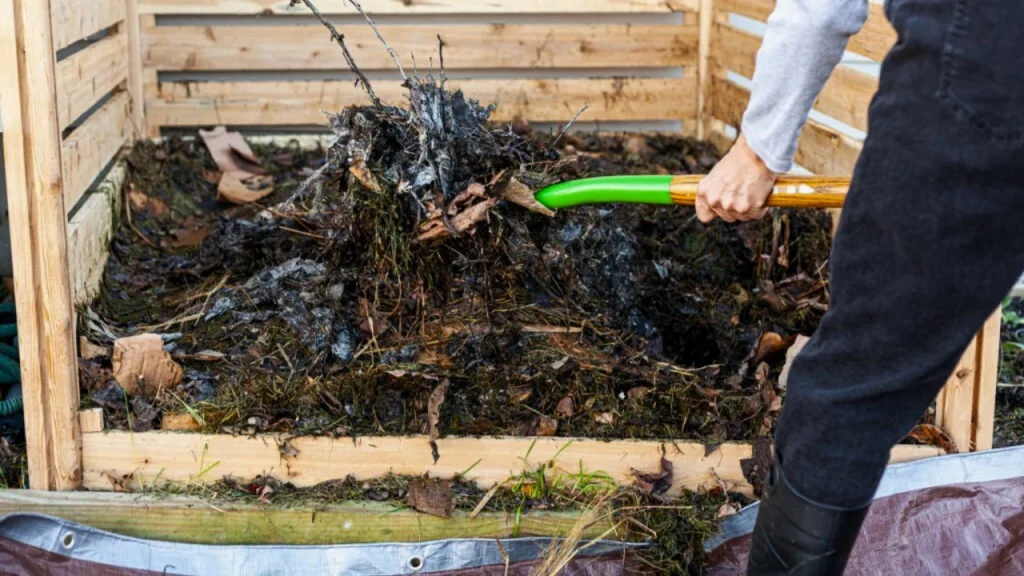
Compost is a nutrient-rich mulch obtained from decomposed organic matter. It improves soil fertility, enhances moisture retention, and promotes healthy plant growth.
Leaf Mulch
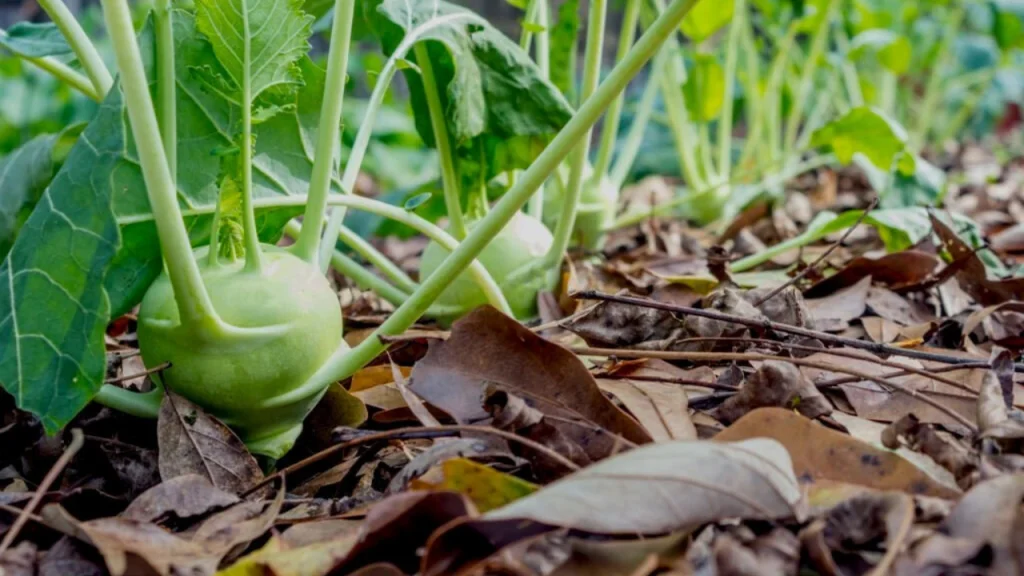
Shredded leaves serve as an excellent mulch option. They add organic matter to the soil, regulate temperature, and promote moisture retention.
How A Yard Of Mulch Looks Like
The appearance of one yard of mulch will naturally be different depending on the type of mulch you are buying. Here are a few examples:
- A yard of hardwood mulch would cover a 10 ft x 10 ft area with a depth of 3 inches. This would weigh roughly around 400 to 800 lbs.
- A yard of pine bark mulch would cover 150-200 sq. Ft. with a depth of 2 inches. This would typically weigh around 500 to 900 lbs.
- A yard of colored mulch would also cover the same area with the same depth. It would weigh around 500 to 800 lbs.
Bear in mind that these are rough estimates, and the actual weights of mulches may vary.
Factors That Affect The Weight Of A Yard Of Mulch
The weight of a yard of mulch varies depending on several factors. Some of the variables that influence the weight of mulch include:
- Moisture content
- Type of wood
- Settling
- Packing
- Chip size
Highlight The Differences Between Dry And Wet Mulch
The moisture content of mulch plays a significant role in its weight. Wet mulch is heavier than dry mulch because water adds mass. For instance, a typical cubic yard of dry hardwood mulch weighs approximately 400-450 pounds, whereas a cubic yard of wet hardwood mulch can weigh up to 950 pounds.
| Type of Mulch | Moist Weight Range (lbs) | Dry Weight Range (lbs) |
|---|---|---|
| Wood Chips | 500-800 | 250-500 |
| Bark Mulch | 400-650 | 200-400 |
| Compost | 1000-1600 | 500-800 |
| Leaf Mulch | 200-350 | 100-200 |
Additionally, wet mulch is more challenging to spread, as it tends to clump and stick together. Dry mulch, on the other hand, is lighter and easier to distribute evenly.
The Impact Of The Type Of Wood On The Weight Of A Yard Of Mulch
The kind of wood used in making mulch can also influence its weight. For example, cedar mulch has a significantly lower weight than hardwood mulch. A typical cubic yard of cedar mulch weighs between 600 and 800 pounds. Hardwood mulch, on the other hand, weighs between 400 and 900 pounds, depending on its moisture content.
Moreover, the type of wood chips can affect the weight of mulch. Finer wood chips are lighter and bulkier, making them less dense and more voluminous. On the other hand, larger chips are heavier and denser, making them more compact and less bulky.
The weight of mulch is not a static value, and it can vary depending on various factors. Hence, it’s essential to understand the factors that affect the weight of a yard of mulch before purchasing one. We hope this post has been informative and helps you make an informed decision when purchasing mulch for your garden.
Key Considerations When Purchasing Mulch
Mulch is a supportive bedding material that works wonders for plants and gardens. It helps retain soil moisture, suppresses weed growth, and adds nutrients to the ground. But before you buy any mulch, there are a few things to consider.
Here are some practical tips for purchasing mulch:
- Assess the area: Measuring the length, width, and height of the area will give you an idea of how much mulch you need. A yard of mulch is a standard measurement that refers to 27 cubic feet.
- Consider the weight: The weight of a yard of mulch can vary depending on the type of mulch. In general, a yard of mulch can weigh between 400-800 pounds. Understanding how much mulch you need and its weight can help you determine how much delivery or manual labor will be required.
- Know the mulch type: Different types of mulch have unique characteristics and are better suited for specific environments. Mulch types vary in texture, color, and nutrient content. Cedar, pine, and cypress, straw mulch are available in most garden stores and are often used for decorative purposes. However, recycled rubber mulch helps prevent weed growth, retains moisture, and controls erosion.
- Look for quality: The quality of the mulch can determine how long it will last. The presence of large pieces or clumps may indicate low-quality mulch. Good quality mulch should be fine, loose, and free of debris, stones, and other materials.
- Check for chemicals: Some mulches contain chemicals that can negatively affect the plants. If you prefer organic and chemical-free mulch, look for products that are free from dyes, preservatives, and other chemicals.
- Choose fresh mulch: Fresh mulch has a natural aroma and a rich color. Stale or old mulch has a dull color and no aroma and can even attract insects.
How to Choose The Right Type Of Mulch
Choosing the right type of mulch can seem overwhelming, but it all depends on the specific needs of your garden and landscaping. Here are some insights on choosing the right type of mulch:
- For flower gardens: Consider using organic mulches such as straw or grass clippings, which help retain moisture and control weeds while adding nutrients to the soil. Mulch that contains ground leaves or bark can also be used.
- For vegetable gardens: Mulch adds nutrients to the soil while keeping it moist and weed-free. Inorganic mulches like black plastic can be used to help control weed growth and maintain soil temperature.
- For acid-loving plants: Pine needles, pine bark mulch, and peat moss are perfect mulch choices for acid-loving plants like azaleas.
- For sloping areas: Mulch that contains shredded bark or wood chips helps control erosion and can prevent soil moisture from running off.
- For play areas: Recycled rubber mulch is an optimal choice for play areas. It helps prevent falls and is long-lasting.
Frequently Asked Questions
Mulching can be intimidating for some homeowners, but it is a straightforward process. Here are some frequently asked questions about mulch purchase and use:
How Much Mulch Should You Use?
A two to three-inch layer of mulch is sufficient for most plants. Use the yard measurement and adjust it according to the thickness of the layer you want.
How Much Does A Yard Of Mulch Weigh?
The weight of a yard of mulch typically ranges from 400-800 pounds, depending on the type of mulch and its moisture content.
How Much Area Does A Yard Of Mulch Cover?
A yard of mulch can cover approximately 100 square feet with a depth of 3 inches.
How Do I Calculate The Amount Of Mulch I Need?
To calculate the amount of mulch needed, measure the length and width of the area to be covered and multiply those together to get the total square footage. Then, use the depth desired and the conversion of 1 cubic yard to 100 square feet with a depth of 3 inches to determine how many yards of mulch are needed.
Can Mulch Be Harmful To Plants?
Excessive application of mulch can lead to plant health problems such as root rot, suffocation, or nutrient deficiencies. Proper application and maintenance of mulch is important to avoid potential issues.
With these tips, you will surely make the right choice when purchasing mulch for your garden and landscaping needs.
Conclusion
To sum up, knowing how much a yard of mulch weighs is essential when planning a landscaping project. The weight of mulch can impact the cost, transportation, and installation of your project. It’s necessary to ensure that you have calculated the right amount of mulch to avoid any additional expenses or waste.
By understanding how to calculate the weight of mulch, you can make an informed decision on which type to choose, the right amount to purchase, and how to distribute it evenly to achieve your desired look. In addition, you should consider the natural resources and environmental impact of your decision.
